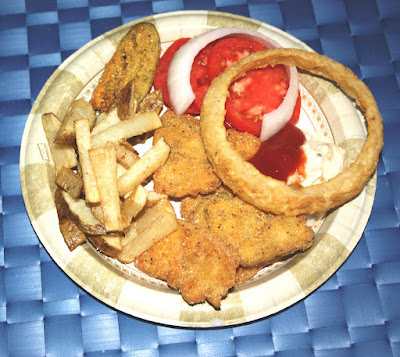African Crowned Eagle, Arusha National Park

Zanzibar Red Bishop, Mikumi National Park

Red-and-Yellow Barbet, Tarangire National Park

Nubian Woodpecker, Tarangire National Park

Martial Eagle, Sadaani National Park

African Hoopoe, Arusha National Park

Secretary Bird, Serengeti National Park

Long-Crested Eagle, Ngorongoro Conservation Area

Grey Crowned Crane, Lake Manyara National Park

Black-Bellied Bustard, Mikumi National Park

Brown-Breasted Barbet, Dar es Salaam

Malachite Kingfisher, Selous Game Reserve

African White-Backed Vulture, Selous Game Reserve

Southern Ground Hornbill, Mikumi National Park

Purple-Banded Sunbird, Dar es Salaam

Lilac-Breasted Roller, Selous Game Reserve

Hammerkop, Dar es Salaam

Red-Headed Weaver, Kilimanjaro National Park

Kilombero Weaver, Kilombero Floodplains

Bateleur, Mikumi National Park

Olive Sunbird, Pugu Hills

African Spoonbill, Selous Game Reserve

Montane White-Eye, Arusha National Park

Cinnamon-Chested Bee-Eater, Arusha National Park

Red-Necked Falcon, Selous Game Reserve

African Fish Eagle, Selous Game Reserve

Pied Kingfisher, Selous Game Reserve

African Golden Weaver, Selous Game Reserve

d'Arnaud's Barbet, Dar es Salaam

White-Fronted Bee-Eater, Selous Game Reserve

Speckled Mousebird, Bagamoyo

Yellow-Rumped Tinkerbird, Zanzibar

Giant Kingfisher, Selous Game Reserve

Northern Carmine Bee-Eater, Sadaani National Park

Pygmy Falcon, Tarangire National Park

African Pygmy Kingfisher, Selous Game Reserve

Green-Winged Pytilia, Selous Game Reserve

Pale Batis, Mafia Island

Grey-Backed Shrike, Serengeti National Park

African Grey Flycatcher, Lake Manyara National Park

White-Headed Buffalo-Weaver, Tarangire National Park

White-Headed Vulture, Mikumi National Park

Red-Fronted Tinkerbird, Sadaani National Park

Black-Crowned Tchagra, Mikumi National Park

Two-Banded Courser, Ngorongoro Conservation Area

Tacazze Sunbird, Arusha National Park

European Roller, Sadaani National Park

Northern White-Crowned Shrike, Mkomazi National Park

Lesser Flamingo, Arusha National Park

Yellow-Collared Lovebird, Tarangire National Park

Red-Necked Spurfowl, Mikumi National Park

Long-Billed Tailorbird, Amani Nature Reserve

Hartlaub's Turaco, Arusha National Park

Black-Crowned Night-Heron, Arusha National Park

Crowned Hornbill, Udzungwa National Park

Little Bee-Eater, Kilombero Floodplains

African Paradise Flycatcher, Jozani Forest

Red-Billed Hornbill, Tarangire National Park

Long-Tailed Cormorant, Arusha National Park

White-Eyed Slaty-Flycatcher, Kilimanjaro National Park

Pin-Tailed Whydah, Amani Nature Reserve

Rufous-Tailed Weaver, Tarangire National Park

Brown Snake-Eagle, Tarangire National Park

White-Browed Scrub-Robin, Mikumi National Park

Crab Plover, Zanzibar

White-Crowned Lapwing, Selous Game Reserve

Yellow-Rumped Tinkerbird, Zanzibar

Common Bulbul, Dar es Salaam

Narina Trogon, Pugu Hills

White-Throated Bee-Eater, Selous Game Reserve

Yellow-Throated Longclaw, Mikumi National Park

Silvery-Cheeked Hornbill, Manyara National Park

White-Fronted Bee-Eater, Arusha National Park

Zanzibar Sombre Greenbul, Zanzibar

Yellow-Necked Spurfowl, Mkomazi National Park

Eastern Chanting-Goshawk, Mkomazi National Park

Black Kite, Mikumi National Park

Red-Necked Falcon, Selous Game Reserve

Wire-Tailed Swallow, Selous Game Reserve

African Pygmy Kingfisher, Tarangire National Park

Brown Snake-Eagle, Tarangire National Park

Tropical Boubou, Arusha National Park

Marabou Stork, Mikumi National Park

Palm-Nut Vulture, Ras Kutani

Von der Decken's Hornbill, Tarangire National Park

African Dusky Flycatcher, Arusha National Park

Saddle-Billed Stork, Mikumi National Park

African Scops-Owl, Tarangire National Park

Water Thick-Knee, Kilombero Floodplains

White-Headed Black Chat, Wami Mbiki Wildlife Management Area

Lesser Swamp Warbler, Kilombero Floodplains

Pearl-Spotted Owlet, Tarangire National Park

Goliath Heron, Selous Game Reserve

Superb Starling, Tarangire National Park

Bare-Faced Go-Away-Bird, Tarangire National Park

Collared Sunbird, Pugu Hills

Blue-Capped Cordon-Bleu, Dar es Salaam

Spectacled Weaver, Dar es Salaam











































































































